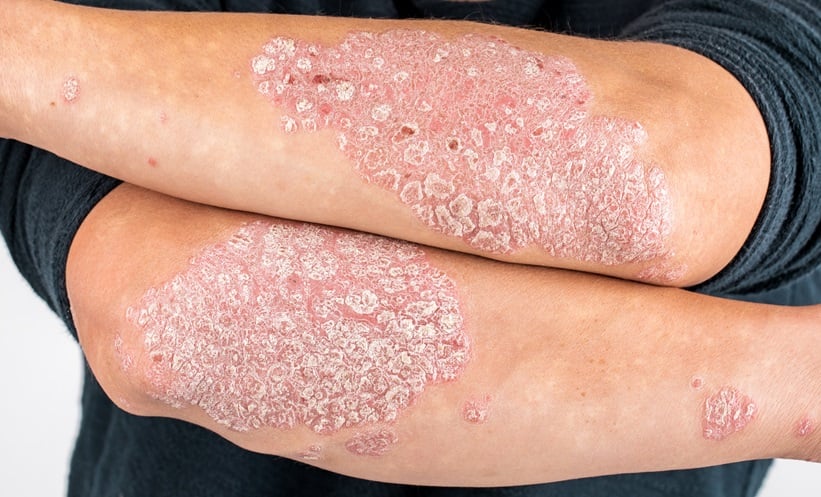NEW findings have identified a link between elevated concentrations of saturated and monosaturated fatty acids and a greater severity of psoriasis. Psoriasis, a systemic disease with a complex pathomechanism, manifests primarily through inflammatory skin lesions and joint complaints. Despite the systemic nature of psoriasis, the link between inflammation and the development of these comorbidities is not always recognised. Omega-3 fatty acids have strong anti-inflammatory effects, inhibiting IL-1β, TNF-α, and IL-6, while omega-6 fatty acids are mainly pro-inflammatory. It has been suggested that an appropriate balance of omega-3 to omega-6 fatty acids can modulate symptoms of inflammatory diseases, including psoriasis. A recent study aimed to analyse the fatty acid profile, including polyunsaturated fatty acids, in the erythrocyte membranes of psoriasis patients in relation to body mass index (BMI) and disease severity to understand how fatty acids modulate the development and progression of psoriasis.
The study involved 58 adults aged 18 to 65 years with psoriasis. These patients had a mean Psoriasis Area and Severity Index (PASI) score of 8.28, a Dermatology Life Quality Index (DLQI) score of 8.98, and a mean BMI of 27.26 kg/m². All patients received either topical (n=30) or systemic (n=28) psoriasis treatment, including cyclosporine A or oral methotrexate.
After three months of treatment, results showed high levels of palmitoleic and stearic acids, but low levels of eicosapentaenoic acid (EPA), alpha-linolenic acid (ALA), and docosahexaenoic acid (DHA) in the patients. Those with a high BMI had higher levels of alanine aminotransferase and aspartate aminotransferase compared to those with normal BMI. Additionally, patients in the systemic treatment group, typically associated with more severe psoriasis, had higher concentrations of saturated fatty acids and lower concentrations of polyunsaturated fatty acids compared to those receiving topical therapy.
The study authors concluded that polyunsaturated fatty acids have a strong immunomodulatory effect, with EPA and DHA associated with reduced inflammation. Reduced levels of EPA and DHA may be linked to impaired anti-inflammatory mechanisms, leading to increased psoriasis severity. The study underscores the importance of dietary fatty acid balance in managing psoriasis severity and highlights the need for further research to explore this connection.
Laith Gergi, EMJ
Reference
Marchlewicz M et al. Fatty acid profile of erythrocyte membranes in patients with psoriasis. Nutrients. 2024;16(12):1799.







